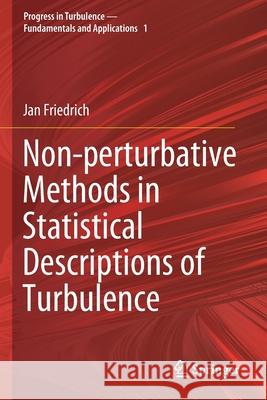Non-Perturbative Methods in Statistical Descriptions of Turbulence » książka
topmenu
Non-Perturbative Methods in Statistical Descriptions of Turbulence
ISBN-13: 9783030519797 / Angielski / Miękka / 2021 / 178 str.
Non-Perturbative Methods in Statistical Descriptions of Turbulence
ISBN-13: 9783030519797 / Angielski / Miękka / 2021 / 178 str.
cena 603,81
(netto: 575,06 VAT: 5%)
Najniższa cena z 30 dni: 578,30
(netto: 575,06 VAT: 5%)
Najniższa cena z 30 dni: 578,30
Termin realizacji zamówienia:
ok. 16-18 dni roboczych.
ok. 16-18 dni roboczych.
Darmowa dostawa!
This book provides a comprehensive overview of statistical descriptions of turbulent flows. Its main objectives are to point out why ordinary perturbative treatments of the Navier–Stokes equation have been rather futile, and to present recent advances in non-perturbative treatments, e.g., the instanton method and a stochastic interpretation of turbulent energy transfer. After a brief introduction to the basic equations of turbulent fluid motion, the book outlines a probabilistic treatment of the Navier–Stokes equation and chiefly focuses on the emergence of a multi-point hierarchy and the notion of the closure problem of turbulence. Furthermore, empirically observed multiscaling features and their impact on possible closure methods are discussed, and each is put into the context of its original field of use, e.g., the renormalization group method is addressed in relation to the theory of critical phenomena. The intended readership consists of physicists and engineers who want to get acquainted with the prevalent concepts and methods in this research area.











